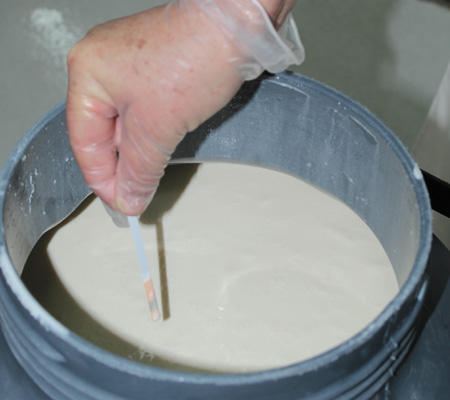Classics for dairy cattle
Classics for dairy cattle


The adoption of classical music for milking cows by the Ecocenter team of the PRÓ-VIDA Club in Araçoiaba da Serra in São Paulo (Brazil) is a result of the research done by our friend Natalya Adbuch, a veterinarian at the club. The study showed that music can promote animals’ well-being and reduce stress, functioning as a conditioning agent and, also, as a stimulus. In addition, it seems to have an influence on lactation hormones, which can be measured through laboratory exams.
In 2017, Natalya did experiments of her undergraduate thesis at the University of Sorocaba on “The effects of classical music on dairy cattle milk production”. The experiment was carried out on twelve cows, at two times.
Initially, an elimination of the conditions that alter the animals’ state was done. Cows have a fixed time for milking; when delayed, they feel and behave differently; as well as when a strange person enters the stable. Such situations provoke a certain state of tension in the animal and, consequently, lowers the quantity of milk extracted. Therefore, the first phase was dedicated to adaption of the animals to the presence of the researcher. Afterwards, measurement of the milk extraction in a period of fourteen days without music was done, then, during the next fourteen days, with music.
In the second step, during the first fourteen days, the quantity of extracted milk without music was measured, in order to establish a parameter for milk collection in the following period. In the subsequent fourteen days, the animals began to listen to Beethoven, Bach, Schubert and Mozart twice a day – because there are two milkings at the Ecocenter – for about two hours, one before milking and one during. Then, the measurement.



The selection of composers and songs considered musical frequencies, friends’ recommendations and intuition itself. They were soft melodies. For the cows, one melody was enough, but also considering the workers that conducted the milking, around fifteen songs were selected for shuffle reproduction.
The result of this empirical observation was: while listening to music, the animals seemed more peaceful; they placed themselves standing in a line, waiting to be milked. And what about the milk production? There was a verified increase of 30%. The research ended, milking returned to its traditional process, without music, and the milk collection returned to its original numbers.
But were only the animals benefited from this practice? For sure, as our friend said, the workers also benefited; she also felt a change in their emotional state. And who knows even the vegetation around could have somewhat benefited.









